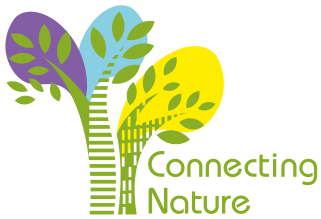
Thamesmead is a unique town, with a unique history. It has an existing community of over 45,000 people, beautiful green spaces and unrivalled space and scale. The estate in south-east London was designed and built in the 1960’s. It was conceived and designed to address some of the problems associated with tenement and high-rise social housing built in the 1950’s where residents no longer knew their neighbours and community cohesion has declined.
However, the interventions did not work well for the residents. The elevated walkways designed to encourage mobility and community interaction were badly planned, poorly lit, and considered unsafe places to walk. The lakes and greenspaces are underused due to poor access routes and orientation and the vast blank green spaces were not multifunctional and provided little of interest to engage residents.
The Thamesmead estate is now manged by Peabody Trust, and is the subject of a billion pound estate regeneration and renewal project, that forecasts to double its population by 2050. Part of the estate will be completely redeveloped to create new homes fit for the future, the remainder of the estate will be renewed through a series of interventions to improve and enhance the public realm with a focus on improving connectivity within and through the estate. Peabody have developed a ‘whole place philosophy’ for Thamesmead, they will be placemakers that take an area-based approach to the regeneration, investment and management of the whole town.
To provide an open forum for people in Thamesmead to discuss nature and the natural environment.
To act as a first step towards creating a more bottom up governance and decision making model.
To enable co-creation with local communities, and extend management roles and decision-making power to residents, the CLEVER Cities project partnership of Peabody, Groundwork and Mayor of London, created a new governance instrument: the Thamesmead Nature Forum. It is co-chaired by the social housing association responsible for the delivery of the public realm works (Peabody) and a local environmental regeneration NGO leading on community engagement and communications (Groundwork) (Wilk et al., 2020b). Following an open call, it is currently established as a community forum of interested residents with events and informal chats to make connections between existing community groups, initiatives and actions underway in Thamesmead, and make a wide range of stakeholders heard. Priorities and decision-making powers and structure are currently being decided by its members. The ambition is that shall become a more strategic, community-based advisory group for outdoor space and green-blue infrastructure at Thamesmead.
Also, a new, non-traditional role of a community Gardener in Residence has been created to undertake outreach work with the local community and make on-the-ground connections with residents. Apart from traditional “green-keeping”, the gardener provides hands-on experiences through workshops, gardening drop-in sessions for residents of all ages which are advertised by social media, posters, and their website (Wilk et al., 2020b).
The Nature Forum is also acting as a springboard for a new Community Design Panel that will act as a co-client for the CLEVER nature-based solutions in South Thamesmead Estate. An open call has been issued for this new group and the Nature Forum will both likely contribute members, but also promote the opportunity within their own networks. The ambitions for this group is to ensure that: designs reflect local need; devolve decisions to members of the community; and decisions are made with total transparency. The aim is to build a strong bottom-up governance structure that lasts after termination of the project and to improve trust within regeneration projects (Konjaria-Christian et al., 2019).
- Increase awareness of NBS solution & their effectiveness and co benefits
- Increase communities’ sense of ownership
- Increase social interaction
- Increase stakeholder awareness & knowledge about NBS
- Increase well-being
- Social inclusion
- Social learning about location & importance of NBS
This project has received funding from the European Union’s Horizon 2020 innovation action programme under grant agreement No 776604. The sole responsibility for the content of this case study lies with the CLEVER Cities project and in no way reflects the views of the European Union.
Further information
- 11. Sustainable Cities and Communities
